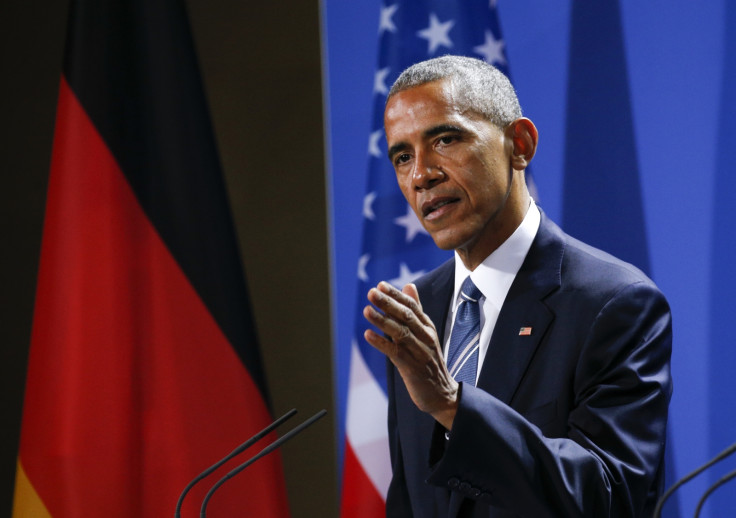Obama slams the spread of fake news online saying it threatens democracy
'If we can't discriminate between serious arguments and propaganda, then we have problems,' Obama said.

President Barack Obama has weighed in on the growth and spread of fake news online, saying such "active misinformation" could pose a threat to democracy. Speaking during a joint press conference in Berlin with German Chancellor Angela Merkel on Thursday (17 November), Obama said: "If we can't discriminate between serious arguments and propaganda, then we have problems."
Since Donald Trump's historic presidential election victory, social media giants such as Facebook have been facing a barrage of accusations that viral fake news could have influenced the election.
Obama said active misinformation is "packaged very well" and "looks the same when you see it on a Facebook page or you turn on your television".
"If everything seems to be the same and no distinctions are made, then we won't know what to protect," Obama added. "We won't know what to fight for. And we can lose so much of what we've gained in terms of the kind of democratic freedoms and market-based economies and prosperity that we've come to take for granted."
Prior to polling day, Obama voiced serious concerns about the dissemination of fake news online during the campaign, arguing that people had started believing "crazy stuff" and "outright lies" simply because they had seen it on social media. He added that the spread of conspiracy theories and fake news had created a "dust cloud of nonsense".
According to a recent BuzzFeed study, fake news stories about the US election outperformed real news stories on Facebook during the last three months of the race to the White House. The analysis also found that the 20 top-performing fake news sites generated 8.7 million shares, reactions and comments on Facebook over the top 20 best-performing election stories from 19 major news websites that garnered 7.4 million reactions.
Among the top 20 most popular fake news stories, all but three favoured Trump or were anti-Hillary Clinton.
On Thursday, prolific fake news writer Paul Horner told the Washington Post that he believed his fake stories might have helped put Trump in the White House.
However, Facebook CEO Mark Zuckerberg has continued to defend the platform, dismissing the accusations that fake news on the social network may have swayed the election as "pretty crazy".
"Of all the content on Facebook, more than 99% of what people see is authentic," Zuckerberg said earlier this week. "Only a very small amount is fake news and hoaxes. The hoaxes that do exist are not limited to one partisan view, or even to politics. Overall, this makes it extremely unlikely hoaxes changed the outcome of this election in one direction or the other."
Both Facebook and Google have announced plans to restrict websites that post fake news from using their advertising software and garnering revenue through their platforms.
A recent Pew Research Center report found that 20% of social media users say they have adjusted their stance on a social or political issue because of something they saw on social media. Around 17% said social media helped change their views on a specific political candidate, the report said.
"Part of what's changed in politics is social media and how people are receiving information," Obama said. "It's easier to make negative attacks and simplistic slogans than it is to communicate complex policies. But we'll figure it out."
© Copyright IBTimes 2024. All rights reserved.





